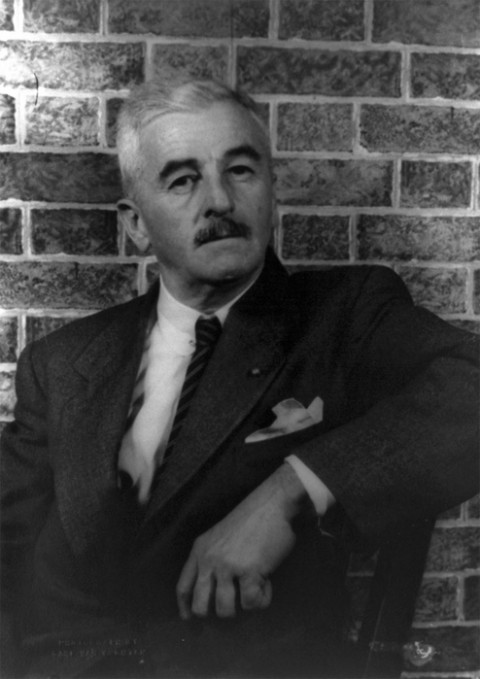 Ask writers for writing advice, and they’ll usually offer up some very practical tips. A few examples:
Ask writers for writing advice, and they’ll usually offer up some very practical tips. A few examples:
- Give the reader at least one character he or she can root for (Kurt Vonnegut).
- When writing dialogue, read things aloud. Only then will it have the sound of speech (John Steinbeck).
- Avoid detailed descriptions of characters (Elmore Leonard).
- Don’t start off trying to write novels. The short story is your friend (Ray Bradbury).
- Write when you know you’re at your best (Toni Morrison).
- And make sure you always take two sharpened Number 2 pencils with you on airplanes (Margaret Atwood).
Like I said, it’s all pretty nuts-and-bolts advice. But if you’re looking for something a little more colorful and outside-the-box, then look no further than William Faulkner’s 1956 interview with the Paris Review. When asked “Is there any possible formula to follow in order to be a good novelist?,” Faulkner perhaps surprised his interviewer, Jean Stein, when he said:
An artist is a creature driven by demons… He is completely amoral in that he will rob, borrow, beg, or steal from anybody and everybody to get the work done.
Elaborating, Faulkner continued:
The writer’s only responsibility is to his art. He will be completely ruthless if he is a good one. He has a dream. It anguishes him so much he must get rid of it. He has no peace until then. Everything goes by the board: honor, pride, decency, security, happiness, all, to get the book written. If a writer has to rob his mother, he will not hesitate.…
If Stein hoped to get Faulkner back into more practical territory with her next question, she was disappointed. To the question, “Then what would be the best environment for a writer?,” Faulkner offered this:
If you mean me, the best job that was ever offered to me was to become a landlord in a brothel. In my opinion it’s the perfect milieu for an artist to work in. It gives him perfect economic freedom; he’s free of fear and hunger; he has a roof over his head and nothing whatever to do except keep a few simple accounts and to go once every month and pay off the local police. The place is quiet during the morning hours, which is the best time of the day to work. There’s enough social life in the evening, if he wishes to participate, to keep him from being bored.… My own experience has been that the tools I need for my trade are paper, tobacco, food, and a little whiskey.
If you want to translate this into practical advice, you get something like this. What should a young novelist aspire to? Basically being a Machiavellian-type in a cat house. Not a pretty idea, but that’s how one of America’s pre-eminent writers saw the literary life. And if you strip things down to their rawest essentials, you might find some wisdom there. Live for your art, and give yourself the economic freedom to write. Nothing more. Nothing less.
You can read the complete 1956 interview here.
Related Content:
William Faulkner Tells His Post Office Boss to Stick It (1924)
William Faulkner Audio Archive Goes Online
William Faulkner Reads from As I Lay Dying
Drinking with William Faulkner


“William Faulkner Explains Why Writing is Best to Left Scoundrels … ”
REALLY?
What about Right Scoundrels?
Oddly, I think this mentality is precisely what the dull monotone of Canadian literature needs to revive itself.
Well, conventional disposition has never really work for an artist. Neither for a writing. Freedom is the one item a writer cannot work without. Convention is limiting.
Hmmm, this gives me hope. I’m burning $12/day in Guatemala and writing a novel. My lifestyle is not unlike Faulkner’s — though I have the added luxury of being unemployed.
An amazing text. I can´t stop thinking in take a drink with Faulkner.
Another thought about writing:
“Life holds its miracles, good erupting from darkness chief among them.”
from “The Darkness of an Irish Morning”
by John Patrick Shanley
in The New York Times March 9, 2013